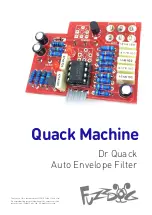
B-1
MC-III™ Panel Mount Flow Analyzer
Appendix B
Appendix B—Lithium Battery Information
Lithium Battery Disposal
Once a lithium battery is removed from a device and/or is destined for disposal, it is classified as solid waste
under EPA guidelines. Depleted lithium batteries are also considered to be hazardous waste because they meet
the definition of Reactivity, as per 40 CFR 261.23(a)(2), (3) and (5). This document describes how the lithium
reacts violently with water, forms potentially explosive mixtures with water, and when exposed to certain pH
conditions, generates toxic cyanide or sulfide gases.
Federal law requires that depleted lithium batteries be sent to a fully permitted Treatment, Storage and
Disposal Facility (TSDF) or to a permitted recycling/reclamation facility.
Important: Do not ship lithium batteries to Cameron. Cameron facilities are not permitted recycling/
reclamation facilities.
Caution: Profiling and waste characterization procedures must be followed prior to shipping a
lithium battery to a disposal site. It is the shipper’s responsibility to comply with all ap-
plicable federal transportation regulations (see below).
Transportation Information
Warning: The MC-III Panel Mount™ Flow Analyzer contains lithium batteries. The internal compo-
nent (thionyl chloride) is hazardous under the criteria of the Federal OHSA Hazard Com-
munication Standard 29 CFR 1920.1200. Before shipping a lithium battery or equipment
containing a lithium battery, verify that the packaging and labeling conforms with the
latest version of all applicable regulations.
The transport of the lithium batteries is regulated by the United Nations, “Model Regulations on Transport of
Dangerous Goods,” (special provisions 188, 230, and 310), latest revision.
Within the US the lithium batteries and cells are subject to shipping requirements under Part 49 of the Code
of Federal Regulations (49 CFR, Parts 171, 172, 173, and 175) of the US Hazardous Materials Regulations
(HMR), latest revision.
Shipping of lithium batteries in aircraft is regulated by the International Civil Aviation Organization (ICAO)
and the International Air Transport Association (IATA) requirements in Special Provisions A45, A88 and A99,
latest revision.
Shipping of lithium batteries on sea is regulated the International Maritime Dangerous Goods (IMDG)
requirements in special provisions 188, 230 and 310, latest revision.
Shipping of lithium batteries on road and rail is regulated by requirements in special provisions 188, 230 and
310, latest revision.
Material Safety Data Sheet
For a link to the current MSDS for the lithium batteries used to power the MC-III Panel Mount Flow
Analyzer, see the Cameron website:
www.c-a-m.com/flo
.
Summary of Contents for NUFLO MC-III
Page 1: ...NUFLO TM MC III Panel Mount Flow Analyzer User Manual Manual No 2350326 01 Rev 02 ...
Page 36: ...36 Section 3 MC III Panel Mount Flow Analyzer ...
Page 66: ...66 Section 4 MC III Panel Mount Flow Analyzer Figure 4 30 4 20 mA output test screen ...
Page 86: ...86 Section 5 MC III Panel Mount Flow Analyzer ...
Page 100: ...B 2 Appendix B MC III Panel Mount Flow Analyzer ...
Page 118: ...C 18 Appendix C MC III Panel Mount Flow Analyzer ...
Page 119: ...C 19 MC III Panel Mount Flow Analyzer Appendix C ...
















































